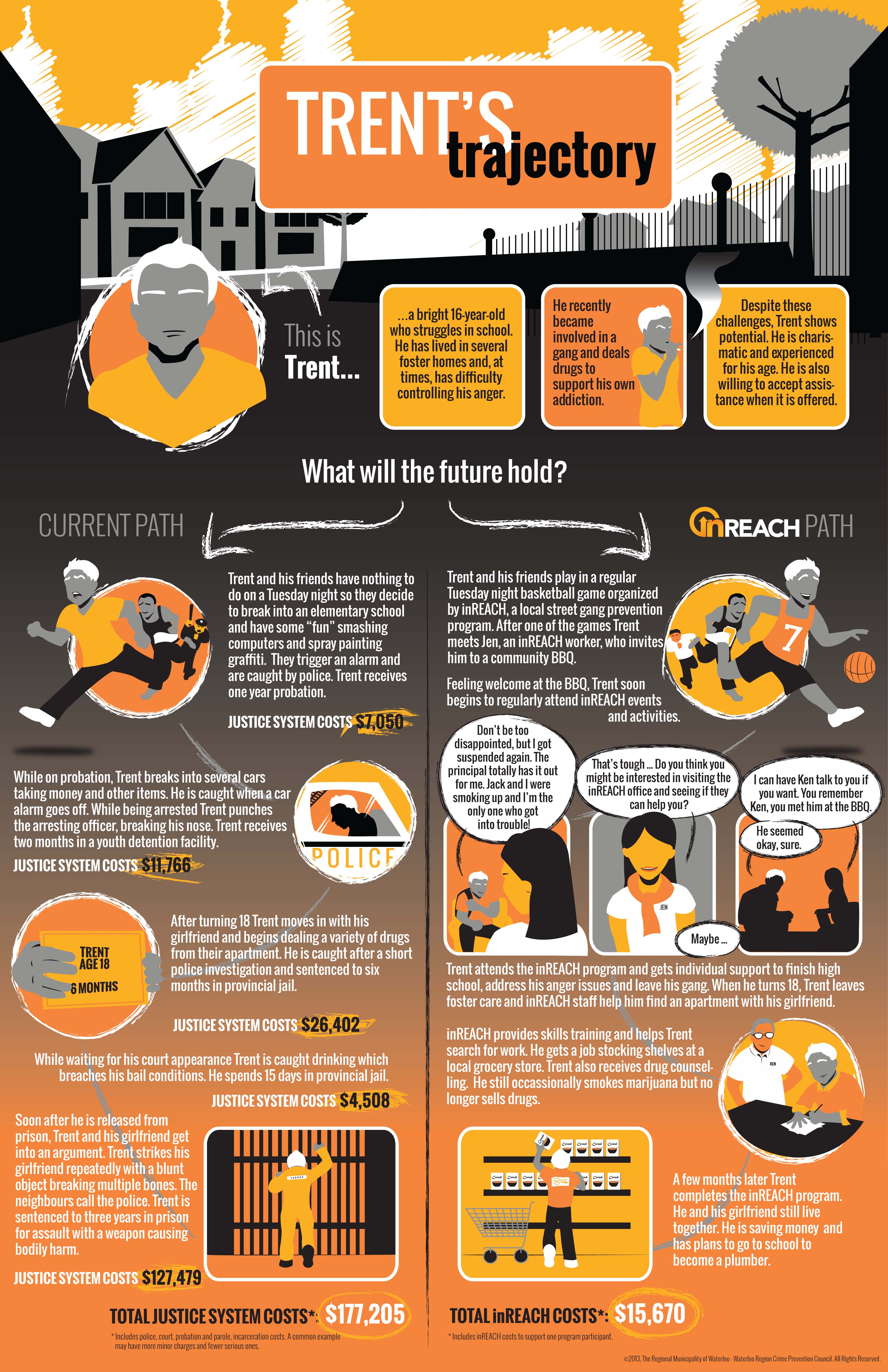Substance Use Curriculum for Educators
Introduction
The long-term effects of using substances (alcohol, cannabis, tobacco and others) have real consequences for our mental and physical health and our personal relationships; especially if use starts during our school years. Substances are increasingly becoming easier to access and, as a result, are becoming more and more a part of the reality of school-aged youth.
If someone is in immediate need of support for a suspected overdose or emergency substance services, call 911.
If you are looking for support with enforcement of the Smoke Free Ontario Act of 2017 on school property (i.e students smoking or vaping on school property), please fill out the form on our enforcement page linked here.
Our Approach
Southwestern Public Health approaches substance use in child and youth populations through an Adverse Childhood Experiences lens, focusing on fostering protective factors which help to prevent substance use in the first place.
Our Healthy Schools Team promotes protective factors by helping educators and administrators build positive school environments, direct programming, student empowerment, stigma reduction, direct consultation, and resource allocation.
Trent’s Trajectory
At Southwestern Public Health we are not alone in our focus on the protective factors that help prevent the initiation of substance use. The infographic below was created by the inREACH project from the Waterloo Region Crime Prevention Council in 2014 as an example of the costs of not providing prevention by amplifying protective factors. The inREACH program is not something we are currently participating in, but it is an example of how our model is designed to work.

Credit: https://preventingcrime.ca/2014/03/25/trents-trajectory-the-dollars-sense-of-crime-prevention/
Working Together to Address Substance Use
| Use Your Instincts |
| Use Your Instincts: Interactive presentations, activities and puzzles designed to integrate information on cannabis, alcohol, tobacco and nicotine harms with life-skills that help students make positive informed decisions around substance use. The tool also focuses on the impacts of substance use related to brain development, as well as the commercial determinants of health such as marketing strategies targeting youth. |
|
Not An Experiment, Grades 7 - 12, Grades 7 - 8 |
| Not An Experiment, Grades 7 - 12, Grades 7 - 8: An escape room program that uses interactive puzzles to teach critical thinking and analysis skills, the health impacts of vaping and nicotine on youth and give context to the marketing strategies used by the vaping industry to target youth. |
| Healthy Relationships Plus Program |
| Healthy Relationships Plus Program: A 14-session program for grades 7 and 8 offered to some local schools focusing on building relationship and communication skills. Completed in collaboration with school staff at the discretion of the applicable school board. |
| Joint Consortium for School Health Substance Resources |
| Joint Consortium for School Health Substance Resources: Preventing substance use harms in school-aged children and youth from a positive youth development perspective using the Comprehensive School Health Framework and Youth voices to create programs and materials. |
| Rethinking Conversation Around Youth Substance Use |
| The Students Commission of Canada worked with the Pan-Canadian Joint Consortium for School Health (JCSH) to develop a series of educational tools to share and integrate the current evidence and initiatives regarding the prevention and reduction of substance-related harms among youth. This multi-media asset consists of three videos: one for youth in grades 6 to 8, one for youth in grade 9-12 and one for adult allies and educators. There are also other materials such as a discussion guide and a resources list to complete the videos. |
| Vaping: What secondary school educators need to know |
| Vaping: What secondary school educators need to know: This 6 page fact sheet from the Centre for Addiction and Mental Health (CAMH) provides general information about vaping and outlines important facts, associated risks, and additional resources to support educators in having informed conversations with students. |
| Cannabis and Mental Health Mentor Guide |
|
Cannabis and Mental Health Mentor Guide: A by youth set of activities that can be used by educators as helpful discussion tools when teaching about the harms of cannabis. |
|
Elementary and Secondary Substance Toolkit |
|
Elementary and Secondary Substance Toolkit: This is a toolkit containing curriculum supports |
|
What's With Weed? : Youth Research and Evaluation eXchange |
|
The Youth Research and Evaluation eXchange's repository of youth curated and created resources on Cannabis which includes toolkits for teaching about cannabis, videos explaining the risks of cannabis use, and some of the social issues and historical contexts surrounding cannabis." |
|
Talking about... Series - Lung Health Foundation |
|
The Talking about… Series from the Lung Health Foundation is an educational resource that helps leaders address lung health issues with youth. The series includes a set of activity guides to help facilitate critical discussion with young people in a fun and informative manner. |
|
Vaping: What elementary school educators need to know |
|
This 7-page fact sheet from the Centre for Addiction and Mental Health (CAMH) and School Mental Health Ontario provides general information about vaping and outlines important facts, associated risks, and additional resources to support elementary educators in having informed conversations with students about vaping at a grade appropriate level. |
|
About Vaping - Canada.ca |
|
Visit Canada.ca for a list of fast facts and links around everything vaping. Think of this as a quick, one-stop Vaping 101! |
|
Youth Mental Health & Addiction Champions Initiative Toolkit from RNAO |
|
This toolkit looks upstream at what makes students not vape and tries to promote those factors while also boosting the mental health of students in schools. The toolkit is intensive but comprehensive and is a great program for any school with a strong group of leadership students and an established hunger for change! |
|
Students Together Moving to Prevent Tobacco use (STOMP) from PHE Canada |
|
This is a project that is being piloted until 2024 in select schools to test its effects on vaping prevention. While it is being tested the program resources are available for use at schools with a group of strong leadership students. |
Parents
| Rethink Your Drinking |
| Rethink Your Drinking: This resource is an awareness campaign aimed at promoting conversations between parents and their youth to encourage moderation or low-risk drinking to support health positive lifestyle choices and reduce the short and long-term risks associated with alcohol consumption. |
| Drug Free Canada - Tips for Parents |
| Drug Free Canada - Tips for Parents: Drug Free Kids Canada page with short general tips for parents when having conversations with their children and teens about substance use. |
| Video: Why the teenage brain has an evolutionary advantage |
| Video: Why the teenage brain has an evolutionary advantage: A video that talks about the stages of brain development, where some students (especially youth) are in that development, why they might use substances during that stage of development and what can be done to prevent use through protective activities. |
| Conversation Starters About Vaping |
| Conversation Starters About Vaping: You can help youth make informed decisions about the use of vaping products. The link contains information you can use to have ongoing meaningful discussions with young people about the effects of vaping. |
| Drug Free Kids Canada: Youth and Vaping |
|
This online informational document contains information for parents on what vaping is and the known harms of vapes as well as some tips on how parents can talk with their youth about vaping. |
Students
| Quash Cessation Supports |
| Quash Cessation Supports: Free smoking and vaping cessation program for youth and emerging adults (ages 14-30), that enables users to build a custom plan for quitting. |
| Consider the Consequences of Vaping |
| Consider the Consequences of Vaping: Resource speaking directly to youth connecting addiction to nicotine, physical harms of vaping and long-term impacts on health. |
| Anti-Stigma Self-Directed Learning Gallery |
| Anti-Stigma Self-Directed Learning Gallery: Government of Canada resource gallery of videos, audio interviews and interview transcripts sharing the lived experience of persons with substance use disorder in various stages of recovery. The resource aims to improve empathy and decreasing the stigma around the disorder. |
| Vaping: What You and your friends need to know |
| Vaping: What You and your friends need to know: This short document from CAMH details the harms of vaping for youth, the laws prohibiting the use of vapes for youth and some basic refusal skills. |
| Consider the Consequences |
| Consider the Consequences: The Consider the Consequences of Vaping self-led module aims to provide youth aged 13-18 with information about vaping to help them make informed decisions about their health. it includes activities and videos on the risks and harms of vaping, the effects of nicotine and cannabis use during adolescence, information on Canadian vaping legislation, the cost of vaping and tips on how to deal with peer pressure. |
| Cannabis and Mental Health Student Training |
| Cannabis and Mental Health Student Training: A By youth for youth set of training modules that discusses the harms of cannabis use, the social context of substances and some strategies youth can use to prevent the harms of cannabis use. |
| Youth Advocates - Lung Health Foundation - Get involved |
|
Four fast online modules for students looking to make an impact in their schools around vaping use. The e-modules cover everything from industry tactics when targeting youth with vapes to how to jump start health advocacy in a school setting. |
|
What you need to know if you choose to consume cannabis - Canada.ca |
|
A harm reduction focussed page dedicated to informing Canadians about the adverse effects of cannabis and the harms of the different ways of using cannabis. This document exists so folks can make informed health decisions if they choose to consume cannabis. |
Did you know? We've got more substance specific curriculum support for educators on our Curriculum Support page.











